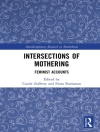`The importance of Michael Jacobs′ book lies in his attempt to convey… Winnicott′s profound influence…. Jacobs rightly delights in the creativity and imagination of his subject and illustrates these with numerous quotations and descriptions from Winnicott′s writings…. What is conveyed throughout the book is the essence of Winnicott…. [whose] gift was to make psychoanalytic language, methods and concepts more widely available, accepted and appreciated to a nonpsychoanalytic world′ – British Psychological Society Counselling Psychology Review
One of the best-known British psychoanalysts, D W Winnicott attracts the interest of counsellors and psychotherapists far beyond the strict psychoanalytic tradition in which he was trained. He coined many phrases that have entered the discourse of therapy, such as `good enough mother′, `transitional object′ and `facilitating environment′. Winnicott has had a profound impact on research into the mother-baby relationship, and his unorthodox manner and sparkling writing style have attracted enthusiastic acclaim.
In this book, Michael Jacobs summarizes Winnicott′s life and explains his major theoretical concepts. He also rigorously evaluates his practice as a clinician – for example, the holding and management of deeply regressed patients. While highlighting Winnicott′s brilliance and creativity, Jacobs is not afraid to scrutinize his contributions more critically. He also discusses criticisms others have made of Winnicott, notably within the psychoanalytic movement. The final chapter assesses the influence of Winnicott′s thinking in other countries as well as in Britain.
Inhoudsopgave
The Life of D W Winnicott
Major Contributions to Theory
Major Contributions to Practice
Criticisms and Rebuttals
The Overall Influence of D W Winnicott
A Select Bibliography of Winnicott′s Works
Over de auteur
Michael Jacobs was for many years director of the counselling and psychotherapy programme at the University of Leicester. He is one of the pioneers of psychodynamic counselling and therapy in Britain. He has written and edited over sixty books including Sigmund Freud (SAGE, 2nd edition, 2003) and D.W. Winnicott (SAGE, 1995). He has been a visiting professor at Leeds and Bournemouth Universities and has a Ph.D, his thesis being on psychoanalytic criticism of Shakespeare’s A Midsummer Night’s Dream. He has retired from practice as a therapist and supervisor, and as a teacher and trainer, but maintains a keen interest in the development of psychodynamic thinking and practice.












